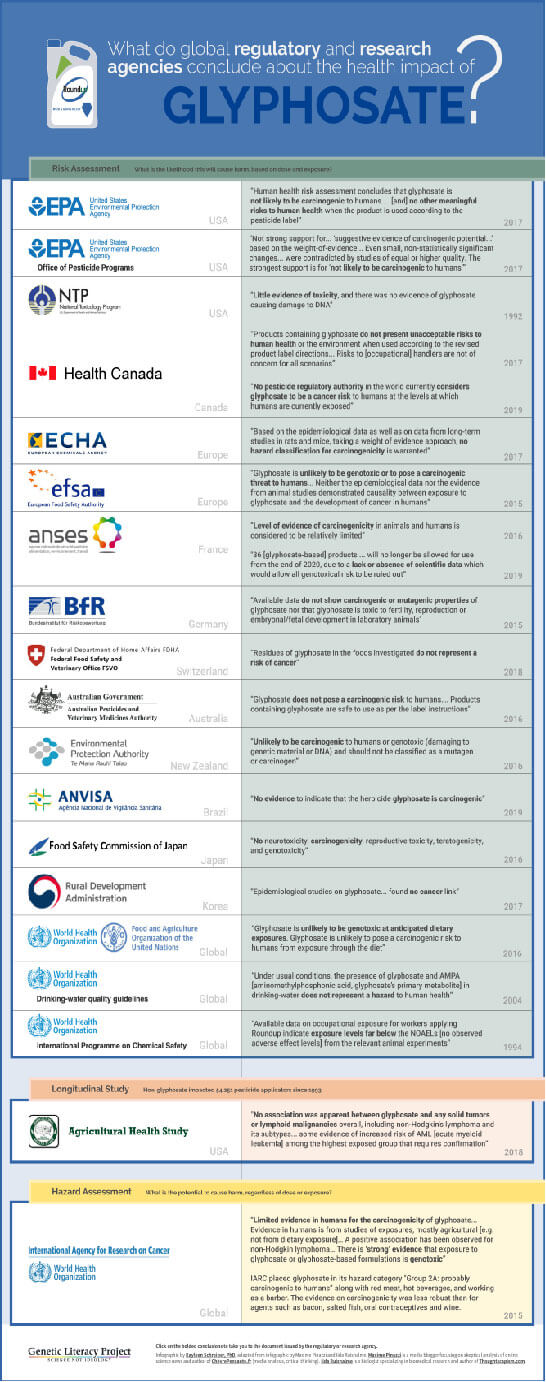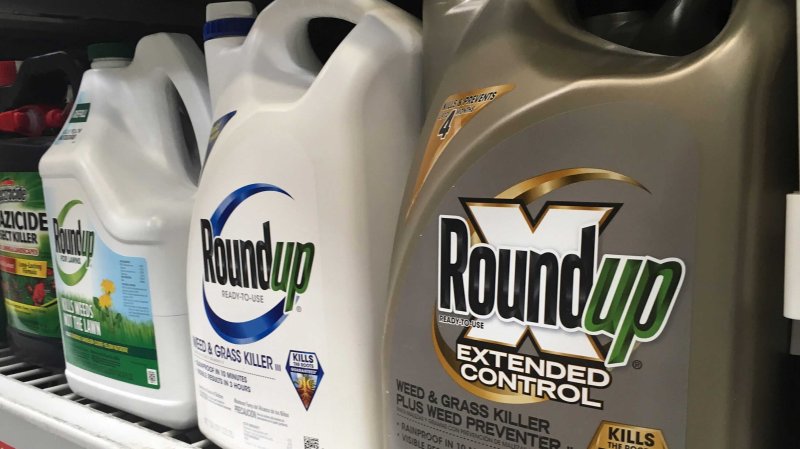Last month, three state medical associations filed an amicus brief supporting Bayer’s appeal of a jury’s verdict in a civil suit that found the weedkiller to have been a factor in causing Dewayne Johnson’s non-Hodgkin’s lymphoma. Initially, the San Francisco Superior Court jury awarded Johnson $289 million, but that figure was later reduced by a judge to $78 million.
The verdict is under appeal by Bayer, which acquired Monsanto in mid 2018 and is facing an avalanche of similar lawsuits across the country. Now it finds itself with several new allies, following the move by the California Medical Association, California Dental Association and California Hospital Association.
Why did the physicians take this extraordinary step?
It’s not all that unusual for interested parties to file amicus briefs in high profile cases such as this. But what is unusual is seeing medical doctors take a step that could be seen as supportive of the safety of glyphosate. Of course, there’s also the fact that doctors, dentists and hospitals are often the target of emotionally-tinged lawsuits alleging negligence. In their brief, the associations made clear that they are not taking a side on the glyphosate/cancer issue. Instead, they expressed concern about how cases such as this — where physician testimony is critical — are handled:
Amici’s point is that the answer to complex scientific questions such as that which the jury was required to resolve in this case should be based on accepted scientific evidence and rigorous scientific reasoning, not speculation and emotion.
In their brief, the associations challenged the basis for the verdict, arguing that jurors may have been influenced by trial lawyers, employing strategies that ‘demonize’ defendants in such cases:
Plaintiffs do so not only to achieve large damage awards, but also to persuade juries to decide issues of negligence and causation based on emotion, rather than reason.
They further suggested that the appeals court may come to a different conclusion, after reviewing the scientific evidence in the case:
Overall, the point is that this case is suspicious because of two problems in tort litigation that health care providers have seen in professional liability litigation. First, in those cases where causation turns on complex questions of science, the decision-making sometimes is based on speculation. Second, the decision-making sometimes is based on emotion.
The groups also took issue with what they say was a failure by the plaintiffs to provide scientific evidence supporting the claim that Johnson’s cancer was caused by exposure to the weedkiller. They note that Johnson’s own treating physicians — including NHL experts at Stanford University — agreed that the cause of the cancer was unknown. But Chadi Nabhan, the doctor testifying in support the cancer claim, pointed to the fact that Johnson is considerably younger than the typical patient with non-Hodgkin’s lymphoma. There’s a problem with that line of thought, the associations said:
The obvious implication is that all unknown causes are age related. The problem with that testimony is that there is no evidence to support that assumption. Rather, that was a speculative leap that Dr. Nabhan made.
What does mainstream research conclude about the dangers of glyphosate?
Furthering their criticism of Dr. Nabhan, the associations note that the doctor acknowledged during the trial that 80-90 percent of such cancers are caused by unknown factors, and that he is “unable to identify a cause of NHL in the majority of his patients.”
Not surprisingly, the trial also included references to the controversial 2015 action by the International Agency for Research on Cancer, which classified Roundup’s active ingredient glyphosate as “probably carcinogenic.” The agency’s monograph — a “hazard evaluation,” dealing with long-term exposure — has been heavily disputed by industry, health organizations and regulatory bodies. Much of the criticism has focused on the fact that IARC did no original research and considered only a few dozen studies, eliminating all studies with financial links to industry or in which a researcher had professional associations with industry. It also did not consider hundreds of independent studies.
See also the GLP’s FAQ: Is glyphosate (Roundup) dangerous?
It remains to be seen whether these organizations’ arguments will have any bearing on the appeals process. Bayer has asked the court to toss out the verdict. Failing that, the company is asking for a new trial, arguing that jurors weren’t allowed to hear evidence that the U.S. Environmental Protection Agency and foreign regulators had deemed glyphosate not likely carcinogenic to humans.

According to Drew Kershen, professor emeritus at University of Oklahoma College of Law, and a GLP board member:
As for impact, it is completely impossible to predict. Yes, amici briefs do have impact and significant impact in some particular cases. Court are routinely persuaded by the arguments in amici briefs. But, at the same time, most amici briefs have zero impact on the appellate court in which amici filed the brief.
Regardless of the outcome, there remains intense debate online and in the media about whether the herbicide poses a health threat to agricultural workers or the general public as a result of residues in food.,
At least 15 regulatory and research agencies [see chart] have conducted extensive long-term studies, reviews or assessments to assess whether glyphosate, when used as directed, increases the risk of certain cancers. Not one organization, including three at the World Health Organization, including WHO itself, concurred with IARC’s highly controversial conclusion that glyphosate could cause harm to workers.
In the time since the IARC report was released, a groundbreaking, longitudinal epidemiological study–Glyphosate Use and Cancer Incidence in the Agricultural Health Study (2017)–was published in the Journal of the National Cancer Institute based on data collected by the Agricultural Health Study since 1993. The AHS evaluated 54,251 pesticide applicators, including 44,932 who had handled glyphosate, concluding:
In this large, prospective cohort study, no association was apparent between glyphosate and any solid tumors or lymphoid malignancies overall, including NHL [non-Hodgkins lymphoma] and its subtypes. There was some evidence of increased risk of AML among the highest exposed group that requires confirmation.
Do trace residues of glyphosate in food pose cancer dangers?
All of the agencies, including IARC, are unanimous in one finding: There is no evidence that glyphosate poses any harm to consumers worried about trace residues in their food. Despite many blogs by anti-biotechnology advocacy groups touting ‘studies’ (usually not very scientific, such as here, most recently) finding glyphosate in beer or cereal at the parts per billion or parts per trillion level, or finding traces of glyphosate in blood or urine, there is no scientific study that suggests those minuscule trace residues pose any threat to humans.
In January 2019, in the wake of the first two trial verdicts, Health Canada reviewed the evidence for a third time and issued this extraordinarily strong summary statement:
After a thorough scientific review, we have concluded that the concerns raised by the objectors could not be scientifically supported when considering the entire body of relevant data. The objections raised did not create doubt or concern regarding the scientific basis for the 2017 re-evaluation decision for glyphosate. Therefore, the Department’s final decision will stand….No pesticide regulatory authority in the world currently considers glyphosate to be a cancer risk to humans at the levels at which humans are currently exposed.
Tim Barker is managing editor for the Genetic Literacy Project. BIO. Follow him on Twitter @tbarker13































